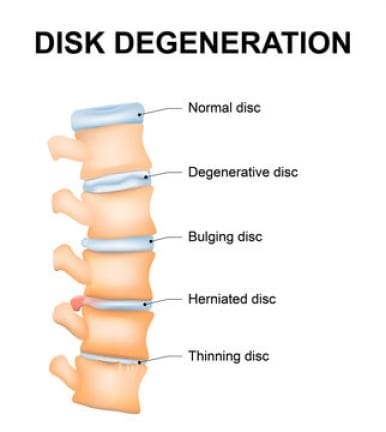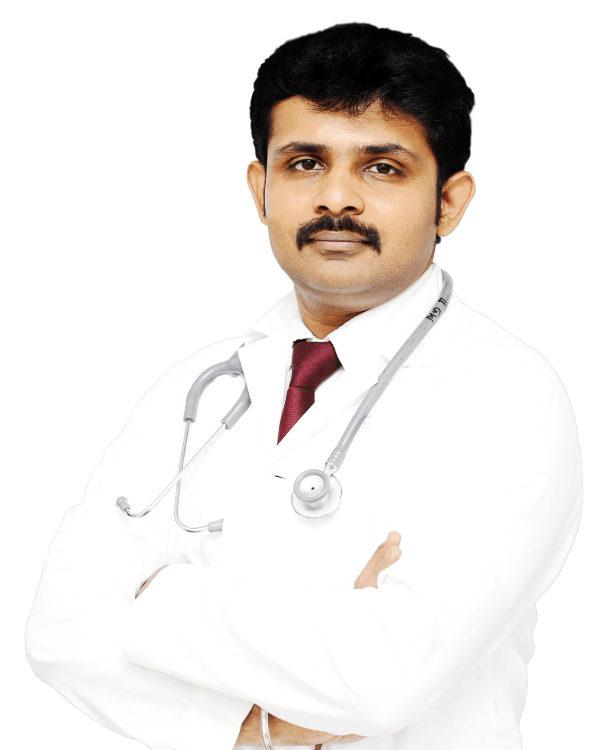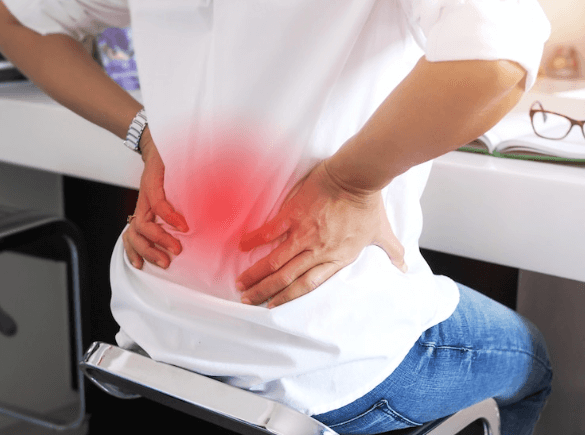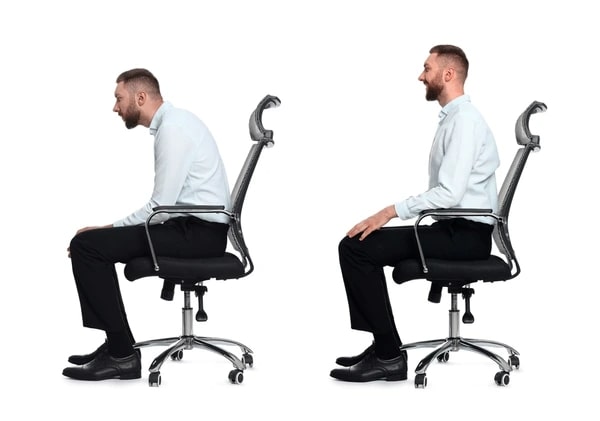Degenerative Disc Disease (DEGENERATIVE DISC DISEASE) is a common condition affecting millions worldwide, characterized by the gradual deterioration of intervertebral discs in the spine.
Understanding the causes, symptoms, and treatment options for DEGENERATIVE DISC DISEASE is crucial for effectively managing this condition and improving quality of life.
What is Degenerative Disc Disease?
The spinal discs are gel-filled structures that provide both cushioning and stability to the spine. They allow us to bend, twist, and move with ease.
Degenerative Disc Disease is a natural part of the aging process. As we get older, the discs lose their water content, becoming less flexible and more prone to tears. Injuries can also accelerate disc degeneration.

Causes of Degenerative Disc Disease
There are several factors that contribute to Degenerative Disc Disease:
- Age-related wear and tear: This is the most common cause. Over time, the discs lose their water content and become less effective at absorbing shock. The disc structure can also weaken and break down.
- Spinal injuries: Accidents, falls, or improper lifting techniques can damage the discs and accelerate degeneration.
- Genetics: Some people are simply more predisposed to DEGENERATIVE DISC DISEASE due to their family history.
Symptoms of Degenerative Disc Disease
The most common symptom of Degenerative Disc Disease is pain. The location of the pain will depend on which disc is affected. Pain in the lower back is most common, but Degenerative Disc Disease can also cause neck pain.
The intensity of the pain can vary from mild to severe and may worsen with activities like sitting, bending, or lifting. Standing or walking may sometimes provide some relief.
Other symptoms of Degenerative Disc Disease include:
- Stiffness: The range of motion in the spine may be reduced, making it difficult to bend or twist.
- Muscle weakness: The muscles surrounding the spine may become weak as they try to compensate for the weakened discs. This can lead to fatigue and imbalance.
- Neurological symptoms (in severe cases): In some cases, Degenerative Disc Disease can compress nerves, leading to numbness or tingling in the legs or arms. Sciatica, a radiating pain down the leg, can also be a symptom.
Diagnosis of Degenerative Disc Disease
Diagnosing DDD typically involves:
- Physical examination: A healthcare provider will assess your medical history and perform a physical examination to evaluate your symptoms and range of motion.
- Imaging tests: X-rays, MRI scans, or CT scans may be ordered to visualize the condition of the intervertebral discs and surrounding structures.
- Discography: In some cases, a discography may be performed to pinpoint the exact location of the affected discs by injecting contrast dye into them.
Degenerative Disc Disease Treatment in Chennai
The good news is that there are a variety of treatment options available for Degenerative Disc Disease, most of which focus on managing pain and improving function.
Non-Surgical Treatments:
- Pain Management: Over-the-counter pain relievers like ibuprofen or acetaminophen can help manage mild to moderate pain. In some cases, prescription medications such as anti-inflammatory drugs may be needed.
- Physical Therapy: A physical therapist can design a personalized exercise program to strengthen the core muscles that support the spine. Stretching and mobility exercises can also help improve flexibility and reduce pain.
- Lifestyle Modifications: Maintaining a healthy weight, practicing good posture, and using proper body mechanics when lifting objects can all help reduce stress on the discs. Applying heat or ice therapy can also provide temporary pain relief.
Degenerative Disc Disease Therapies in Chennai
If you’re living with Degenerative Disc Disease in Chennai, Dr. Vignesh Pushparaj offers minimally invasive procedures that can provide targeted pain relief:
Epidural steroid injections: These injections deliver a dose of anti-inflammatory medication directly to the epidural space around the spinal cord, helping to reduce pain and inflammation.
Facet joint injections: Facet joints are small joints located between the vertebrae. Injections into these joints can target inflammation and provide pain relief.

Degenerative Disc Disease Surgery in Chennai
In some cases, where conservative treatments fail to provide adequate relief, surgery may be an option.
Dr. Vignesh Pushparaj is a highly skilled spine surgeon in Chennai who offers various surgical procedures for Degenerative Disc Disease, including:
- Microdiscectomy: This minimally invasive surgery removes a herniated disc fragment that is pressing on a nerve.
- Spinal fusion: This surgery permanently joins together two or more vertebrae to provide stability and prevent excessive motion.
Dr. Vignesh Pushparaj will perform a thorough pre-surgical evaluation to determine the best course of treatment for your individual needs.
Don’t let Degenerative Disc Disease control your life. If you’re experiencing back pain or stiffness, schedule a consultation with Dr. Vignesh Pushparaj, a leading spine specialist in Chennai.
Together, you can explore treatment options and create a personalized plan to get you back to living a pain-free life.





0 Comments